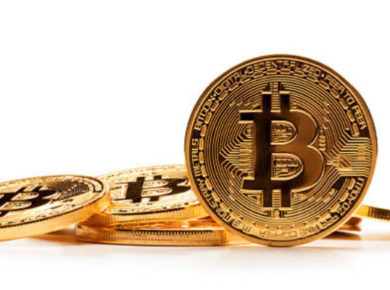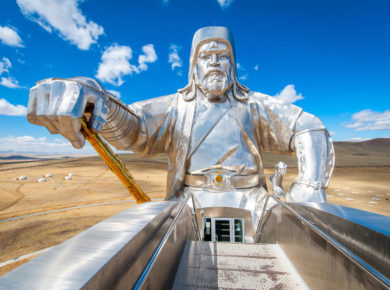There’s a new Bitcoin (BTC) initiative on the table that would see miners as energy buyers, providing complementary technology for clean energy production and storage, better return to investors, and excess energy, as well as help solve solar and wind intermittency and congestion problems, potentially leading to the greening of the bitcoin mining industry. Not everyone agrees with this, while Ripple Co-founder and Executive Chairman Chris Larsen suggested to “reconsider” the proof-of-work algorithm now used by Bitcoin, Ethereum (ETH), and some other crypto networks.
Major financial services company Square and active management firm Ark Invest published a whitepaper titled ‘Bitcoin Is Key To An Abundant, Clean Energy Future.’ It discusses Bitcoin mining’s ability, in conjunction with renewable energy and storage, to facilitate and accelerate “a transition to a cleaner and more resilient electricity grid” – with miners capitalizing the most on this development.
The paper goes on to explain that the Bitcoin network, or more precisely its miners, are unique energy buyers that could enable society to deploy substantially more solar and wind generation capacity, while “the energy asset owners of today can become the essential bitcoin miners of tomorrow.”
The miners offer highly flexible and easily interruptible load, provide payout in a globally liquid cryptocurrency, and are completely location agnostic, needing only an internet connection, it said, adding:
“These combined qualities constitute an extraordinary asset, an energy buyer of last resort that can be turned on or off at a moment’s notice anywhere in the world.”
While solar and wind are the least expensive energy sources, they’re suffering from deployment bottlenecks, mostly due to their intermittent power supply and grid congestion. Also, they provide more power than society typically needs for a few hours a day and not nearly enough when demand spikes.
Bitcoin mining can therefore serve as a complementary technology for clean energy production and storage, while the miners may help solve much of the intermittency and congestion problems, resulting in grids deploying more renewable energy.
Per the paper, combining miners with renewables and storage projects could:
- improve the returns for project investors and developers, moving more solar and wind projects into the profitable territory;
- enable the construction of solar and wind projects while waiting for the lengthy grid interconnection studies to be completed;
- provide the grid with readily available ‘excess’ energy for increasingly common black swan events like excessively hot/cold days, which will also be useful as society’s electricity demands increase with the rise of device electrification and electric vehicles.
Long-term, the whitepaper sees two large implications if Bitcoin mining becomes normalized as an energy buyer of last resort:
- the amount of solar and wind energy on the grid cold increase dramatically;
- there could be a sizable transformation and greening of the bitcoin mining industry.
Deploying more solar and wind, these generation technologies will likely fall further down their cost curves, bringing them closer to zero marginal cost energy production, said the paper and added:
“But if solar and wind become even less expensive and constitute an increasingly large portion of baseload power, the ultimate trend would continue moving quickly toward renewable dominated hashrate. We believe deploying such a large amount of new, geographically diverse hashrate would also have the second order consequence of strengthening the security of the Bitcoin network, potentially further entrenching bitcoin as a sound currency for all.”
This research collaboration debunks the myth that Bitcoin mining is damaging the environment, according to Cathie Wood, the founder of Ark Invest. “Instead, as crypto mining, energy storage, and AI technologies converge, the adoption of renewable energy is likely to accelerate,” she said.
While critics say the computation required to secure Bitcoin is environmentally damaging, Ark claims “that the opposite is true: a world with bitcoin is a world that, at equilibrium, generates more electricity from renewable carbon-free sources.”
With Twitter and Square chief saying that Bitcoin incentivizes renewable energy, Tesla‘s chief Elon Musk chimed in with a simple agreement:
@jack True
— Elon Musk (@elonmusk)
“Tesla’s mission statement is literally “to accelerate the world’s transition to sustainable energy”,” said Steve Lee, project manager for Bitcoin development at Square Crypto.
Per Nic Carter, Founding Partner of blockchain-focused venture capital firm Castle Island Ventures, BTC just accelerates the reality that “computation will be the largest single global consumer of energy within a decade or two, and rightfully so.” He added that in hindsight, thinking of large-scale computation as wasteful will be seen as absurd.
This is simply a reality we’re transitioning towards, the challenge lies exclusively with policymakers to equip the grid for more computation. Selectively banning certain types of compute is an unworkable pipe dream
— nic carter (@nic__carter) April 21, 2021
But there was again a debate on terminology and phrasing, especially given the space’s young age. BlockTower Capital founder Ari Paul said he would not call proof-of-work (PoW) computation in the given context, because it “just invites the obvious (and reasonable) critique that you’re not computing something useful as we usually think of it.” Rather, it’s better to frame it as direct security spend, he said.











